Power of Parks for Health Roundtable
This month, we are illuminating the stories and experiences of Native communities in connection to health and the outdoors. The National Park Service and National Environmental Education Foundation (NEEF) are partnering to host a roundtable discussion on the Power of Parks for Health, Thursday, November 4, 2021, from 6:30 p.m. to 8:00 p.m. EDT. Our panel will discuss approaches to increasing visibility and representation of native history and communities in parks and public lands. Registration is free and open to all.
During this event, we will:
-
Discuss the impact of present and historical barriers to outdoor access for Native communities
-
Explore the Power of Parks for Health through the lens of stories and experiences of Native communities
-
Provide a platform to recognize leaders and current opportunities strengthening community relationships and furthering education
- Identify and highlight approaches to increase visibility, representation, and relevancy of Native communities in the outdoors
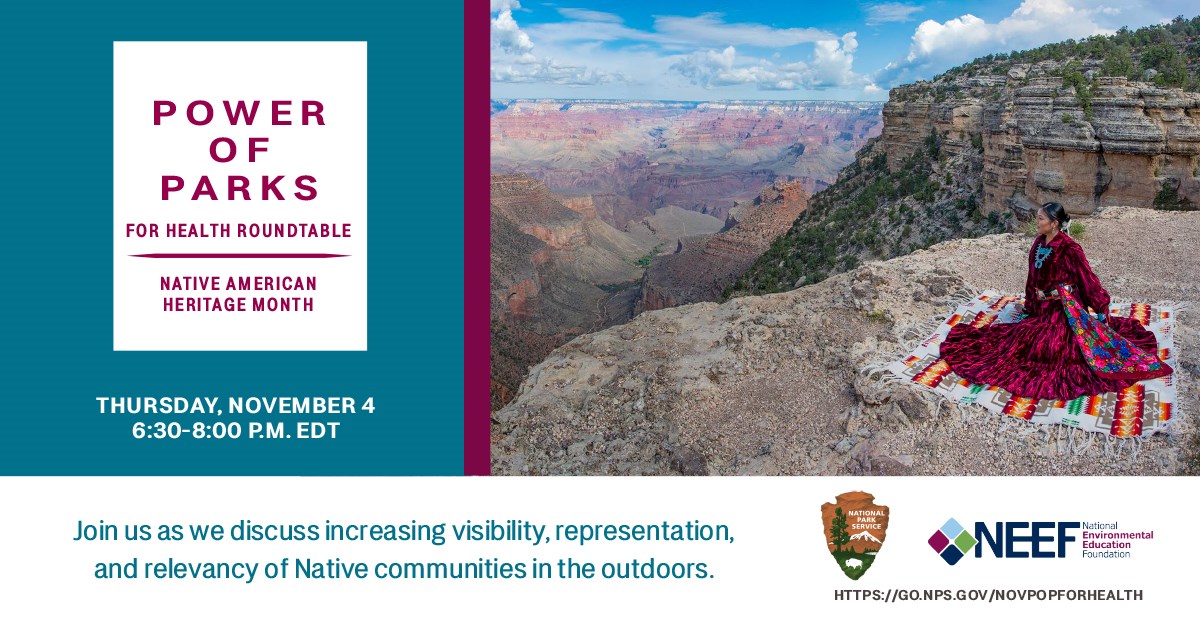
Watch the Discussion!
Moderator and Panelists
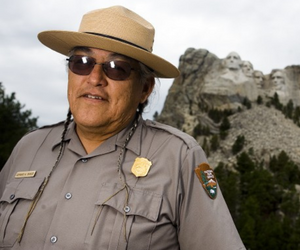
Gerard Baker (Yellow Wolf) | Moderator
National Park Service (Retired)
NPS Assistant Director | American Indian Relations
Gerard grew up on the Fort Berthold Indian Reservation of the Mandan-Hidatsa Tribe. He retired after 36 years in the National Park Service. In earlier years, Gerard worked as a Park Ranger, Law Enforcement and Interpretation in 5 NPS areas. Gerard also served as Superintendent at Little Bighorn NM, Chickasaw NRA, Lewis and Clark NHT, Mt. Rushmore NM and was the the first American Indian to be Assistant Director for the NPS. Additionally, Gerard worked for the Forest Service and after retirement was employed by Ogalala Parks and Recreation Authority, Pine Ridge, SD putting together the plan for the first Tribal National Park, adjacent to Badlands NP. Gerard is married to Mary Kay and they have 4 Children and 11 grandchildren. He currently resides on their ranch at Grave Yard Creek, 30 miles S.W. of Miles City Montana.
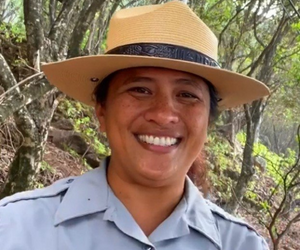
Miki'ala Pescaia | Panelist
National Park Service-Kalaupapa National Historical Park
Interpretive Park Ranger
Miki’ala Pescaia, descends from a long line of kanaka maoli storytellers whose bones lie in the soil of Molokai island. Molokai is also home to Kalaupapa National Historical Park. The layers of Kalaupapa history are rich - stories of fertile lands, hard-working residents, cunning chiefs, mythical beasts, powerful deities and in the last 150 years, a quarantine settlement for individuals afflicted with Hansen’s disease established by kingdom law. During that time, over 8,000 individuals were exiled to Kalaupapa, most of whom were Native Hawaiian but included many other ethnicities and cultures. Learning how to build a new community, adjust to the separation from family and livelihood, and coping with an incurable disease, forged new stories of resilience, hope and compassion to emerge. Mikiʻala is an advocate in native Hawaiian education, language, birth and death practices, birds and plants protection, land rehabilitation, community engagement in public policymaking, conservation, foster youth and public health. Sheʻs earned a bachelor’s degree in Hawaiian language, and is currently pursuing a master’s degree in curriculum studies with a STEMS focus both from the University of Hawai’i at Mānoa. She has worked in education for over 25 years, and for the Park Service for 7, serving as an interpretive park ranger.
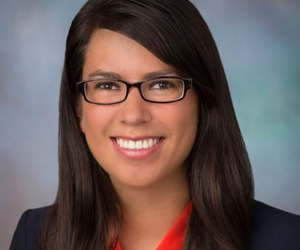
Maria Givens | Panelist
Tahoma Peak Solutions
Co-Founder
Maria Givens is an enrolled member of the Coeur d'Alene Tribe in northern Idaho and co-founder of Tahoma Peak Solutions. Maria formerly served as the Communications Director for the Native American Agriculture Fund where she built the communications structure of the largest private charitable trust serving Indian Country. As a Policy Analyst for the National Congress of American Indians (NCAI), Maria managed the agriculture, telecommunications and cultural protections portfolio. She is now engaged in food sovereignty work and sustainable food system planning.
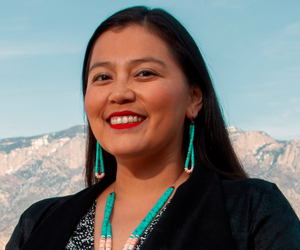
Jaclyn Roessel | Panelist
U.S. Department of Arts & Culture
Director of Decolonized Futures and Radical Dreams
Born and raised on the Navajo Nation, it is the wisdom of her homelands that shapes Jaclyn Roessel’s cosmovision. Experience as a museum professional, cultural arts producer and curator confirmed her belief of the inherent power of utilizing cultural learning as a tool to engage and build stronger communities. Molded by her grandmothers, Jaclyn has fostered a praxis that utilizes Indigenous ways of knowing and decolonized methodologies as a catalyst to build cultural equity in organizations like the Coalition to Stop Violence Against Native Women, San Diego Museum of Us and more. Whether it is as the founder of her company Grownup Navajo, in her poetic writings, or in her work as a cultural justice & equity consultant, Jaclyn is motivated by the pursuit of Indigenous excellence and the action to radically imagine futures where Native peoples’ lands and cultures are thriving, revered and protected. She is director of decolonized futures and radical dreams at the US Department of Arts & Cultures as well as a co-founder of Native Women Lead. Most importantly, Jaclyn is a wife, mother and lives with her family in the Pueblo of Tamaya in New Mexico.
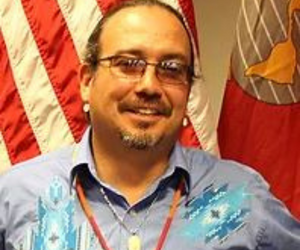
Ty Smith | Panelist
Native American Indian Center of Central Ohio (NAICCO)
Project Director
Masami Smith, NAICCO Executive Director, and Ty Smith, NAICCO Project Director, are both tribally enrolled members of The Confederated Tribes of Warm Springs (Oregon); where they both were born and raised. They are married with three children, one grandson, one granddaughter, and have been by each other’s side for 30+ years. Together, they have chosen to combine their life experiences and education to seek out the best possible ways to give back to their Native People, both in Ohio and around Indian Country. Since 2011, they have had the honor and responsibility of serving as management at the Native American Indian Center of Central Ohio (NAICCO). Over the years, they have not only helped save NAICCO from going under, but they also revitalized the agency into that of a reputable urban Indian center in Ohio – one based on integrity. Along with that, they have been able to positively impact the lives of countless Native American individuals and families. Today, they continue to hold steadfast to their mission work of preserving and restoring balance in the lives of their Native People through traditional, cultural, educational, family, community, and wellness driven values and initiatives.
Last updated: October 11, 2022
